In what ways do games describe the world?
Victoria 3 is the latest installment in Paradox’s Victoria series of historical strategy games after 13 years.
It is more subdued than “Hearts of Iron” and “Europa Universalis,” but it has many deep-rooted fans.
The main feature is that while “HOI” and “EU” are oriented toward war and conquest/expansion, “Victoria” is about economic development and the accompanying changes in social structure. As a strategy game, it is unique.
It is the return of the Queen.
Let us welcome her with a decade’s worth of joy as we listen to the song sung by Richard Arkwright’s machine.
Petals of freedom and rights dance in the sky.
Now, once again, it is time for revolution.
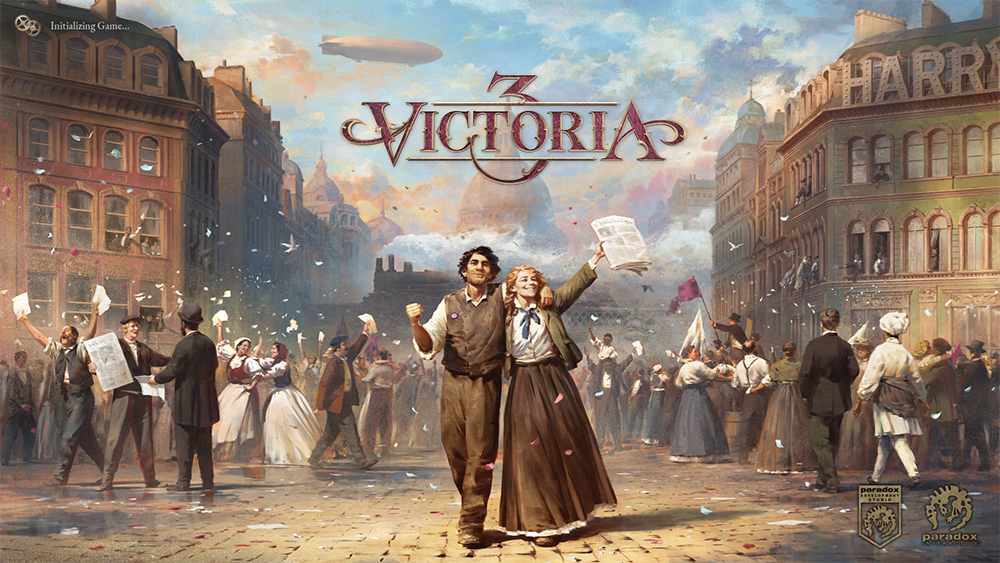
Belle Epoque. Paris is glamorously dressed.
Victoria takes place between 1836 and 1936. It was a time when the Industrial Revolution dramatically increased the wealth of ordinary citizens, and the consumer culture of the masses began.
Especially in Paris, the capital of France under the Third Republic, literature, theater, and music blossomed in profusion.
A hundred years in which ordinary citizens finally come to the foreground and begin to take on the role of stakeholders in the state. It is a period commonly referred to as the Belle Epoque.
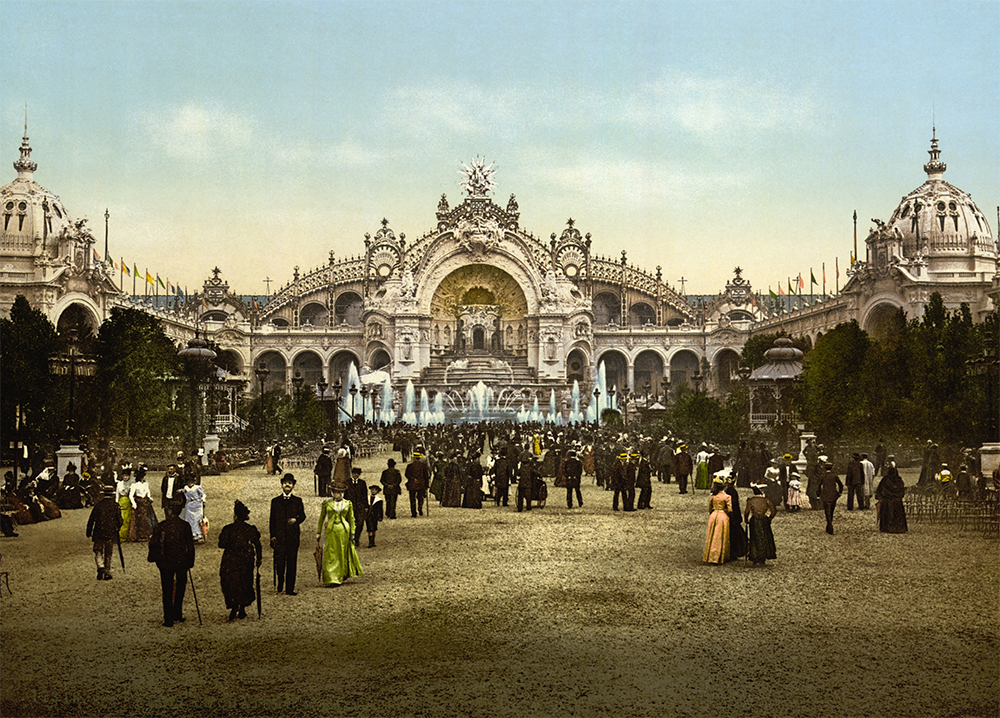
Victoria is a game in which players seek global dominance by developing their economic power while transforming their country into a modern state during the great transition in human society. In many cases, territorial expansion is a means to economic growth, not an end.
However, developing an economy in “Victoria” is not easy. As in the actual international economy, various factors are involved in a complex way.
Will you enjoy this complexity?
If you are interested in the workings of international economies and social structures, “Victoria” is a one-of-a-kind game that will meet your expectations.
A country developing before your eyes.
Expanding cities. And connecting railroads.
When I started the game, the first thing that struck me was the significant evolution of its visual aspect.
The world map is represented in three dimensions, allowing the player to view the world as if it were a diorama.
If you build a factory, the town will become urbanized, and this will be reflected on the map. If you make a railroad, trains will connect towns.
If you play in a country like Japan, where there is much room for development, you will see the country transform dramatically over 100 years.
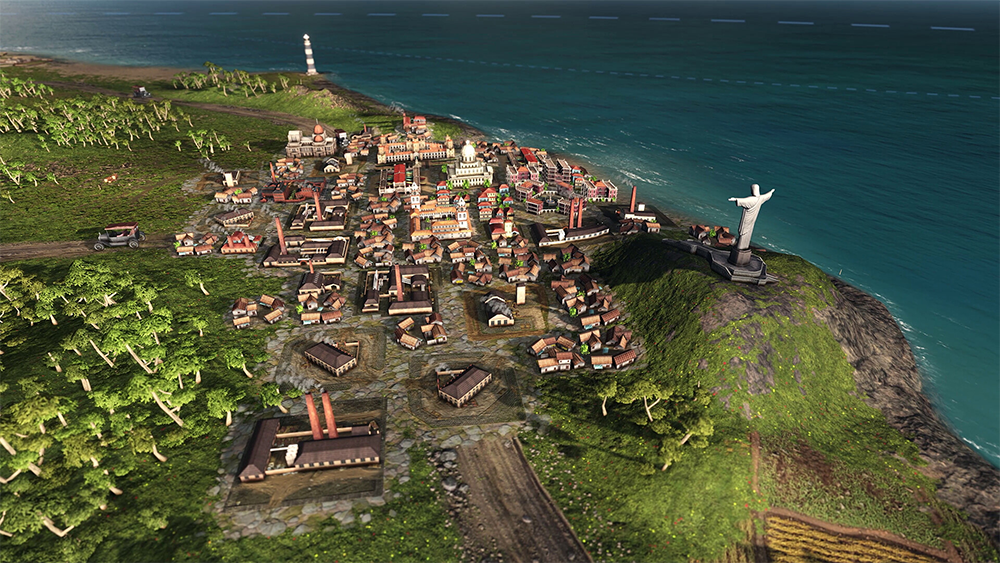
One of the clear weaknesses of the “Victoria” series so far has been the visual aspect.
Many people won’t think this game looks interesting when they see the visuals.
If a strategy game is about expanding territory through war, its appearance will change. However, in “Victoria,” where the objective is economic development, only the numbers representing economic power change, so the game lacked attractive visuals that would attract players.
In “Victoria 3,” however, thanks to this diorama-like map, players can visually see the development of their nation. This is a significant evolution.
Hopefully, we would like to see more variation in the visuals. It would be ideal if players could take the initiative to create their own landscapes.
Goodbye, world market.
There are also significant changes in the economic system that are important in Victoria 3.
The critical change is that each country now has its own economic market. France has its own economic market, and Japan has its own economic market, where the prices of products fluctuate.
Until “Victoria 2,” there was an OOPArt called the “world market,” through which each country traded, but this has finally been eliminated.
This allows for economic strategies, such as prioritizing the production of products whose prices are rising in the United Kingdom, which has a trade agreement with the United Kingdom.
The logical gameplay of building production facilities to meet domestic or international needs and improving efficiency through technological innovation has become more sophisticated.
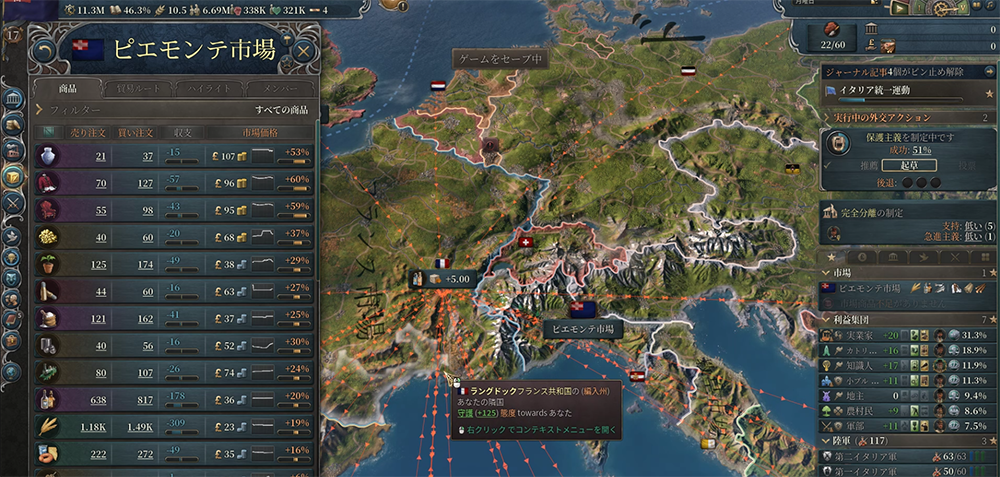
On the other hand, problems do exist.
Are German and Persian automobiles the same automobile?
Of particular importance is that no matter which country you play in, the process and outcome of developing an industry will be much the same.
In most cases, the process starts with primary industries such as agriculture and mining, moves through initial industrial products such as textiles and furniture, and eventually leads to high-value products such as telephones and automobiles.
This is the same whether you play in the UK, the US, Japan, or Egypt.
Different countries should develop different major industries, such as the machine industry in Germany, shipbuilding in the UK, and textiles in Italy.
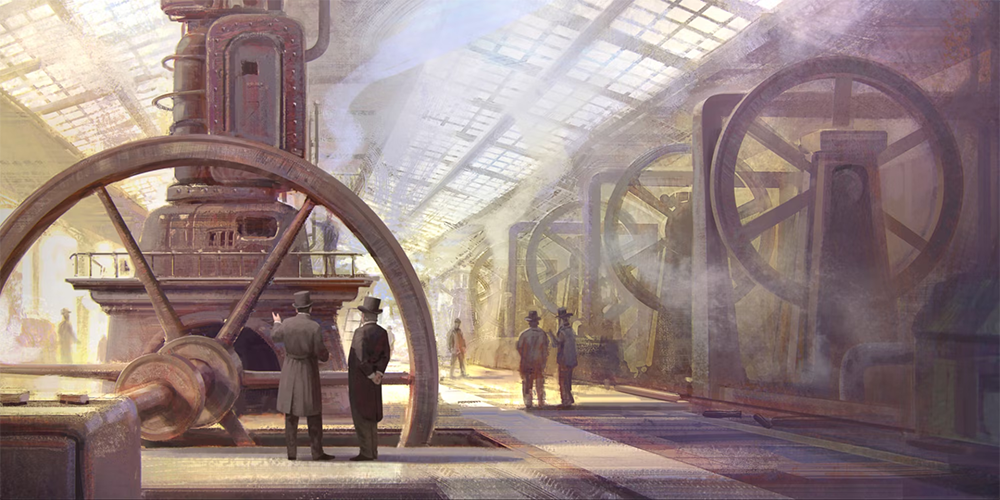
One of the factors causing this problem is that the value of a product does not change regardless of which country it is produced in.
Whether a car is produced in Germany or Persia, its value is the same. Although there are differences in production volume and efficiency, in the market, they are treated as cars with the same value.
This would make it challenging to create differences in the direction of economic development by country.
This problem should not be underestimated, considering that most of the time spent playing “Victoria3” is spent coordinating economic activities.
Citizens who rise with the Industrial Revolution. Their voices and footsteps transform the nation.
In Victoria 3, a game system as important as the economy is the control of governments and laws. This game system directly expresses the game’s theme of ‘changing social structures.’
Every citizen in Victoria 3 belongs to one of the ‘interest groups,’ and each ‘interest group’ has its own set of laws to support. Capitalists support laissez faire, and the Clergymen support Religious Schools.
They also have a set of laws they oppose. Aristocrats are firmly against the emancipation of serfs, and Academics are against the
Secret Police.
The laws that can be enforced in a country are then determined by the interest groups that make up the government.
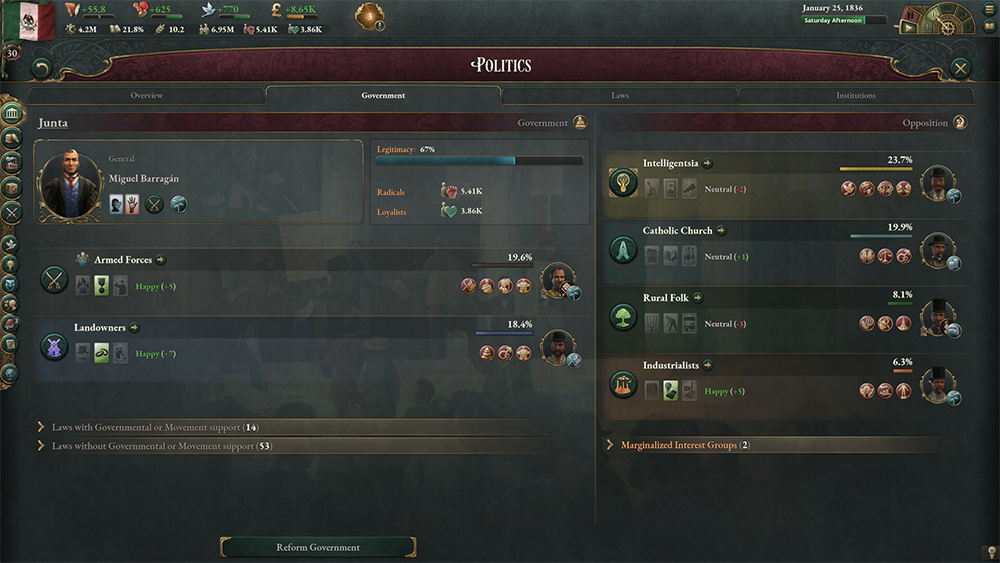
Players are free to choose interest groups to add to the government. However, adding interest groups with low ‘influence’ to the government will result in various penalties and severely hamper the economy and military. In the worst-case scenario, a rebellion would break out, and the state would crumble.
Players, therefore, need to lead the growth of the influence of the interest groups they want to add to their own government.
If they want a liberal economy, they should extend the influence of the capitalists who support it.
Since ‘influence’ is determined by the number and financial power of the people who make up its interest groups, the influence of the capitalists will grow if the economy continues to develop. However, it is possible to suppress them and aim for a conservative state if one dares.
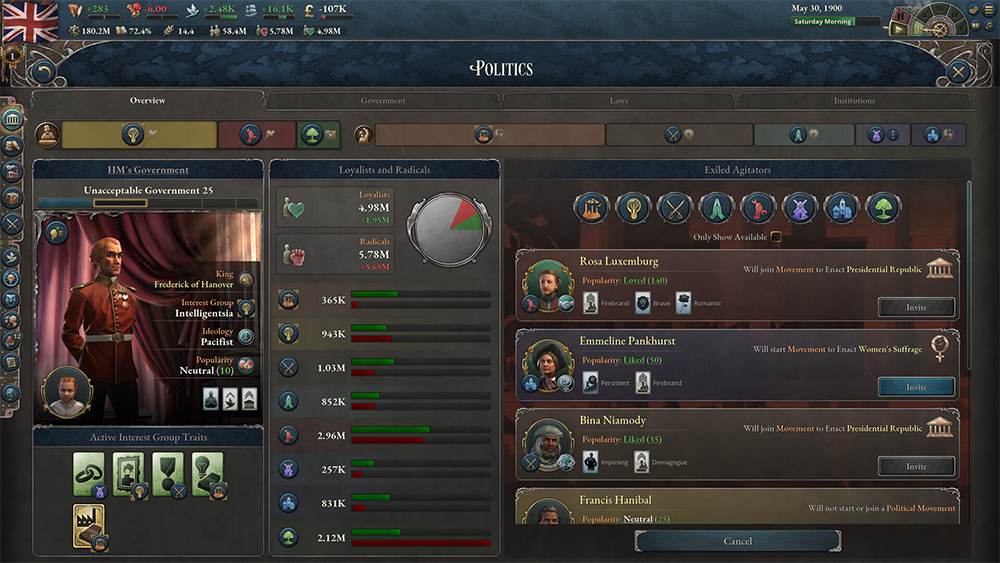
This game system around politics and the law is really well-designed.
Ordinary citizens began to increase their financial power and influence due to the economic development associated with the Industrial Revolution. The game system recreates the process of their emergence as stakeholders in the state and their drastic changes to the structure of the world.
This is nothing short of brilliant.
Liberalisation. The path to political reform is limited to one.
However, the same problems arise as with economic systems.
No matter which country you play in, the process and the outcome of political reforms are almost always the same.
Democracy is better than monarchy for growing economic strength, and universal suffrage is better than tyranny. Multiculturalism is better for attracting immigrants and increasing the population, and monetary policy is ultimately more efficient with liberalism.
In other words, each law’s upper and lower levels are fixed, so the play tends to be limited to solely aiming for the upper level of the law.
Of course, if you are willing to sacrifice economic development, there are plenty of options. You could aim for a monarchy in the USA or uphold the shogunate’s survival in Japan.
However, there is only one path to achieving economic development, which is the goal of most players. There are almost no options other than gradually enacting more liberal laws.
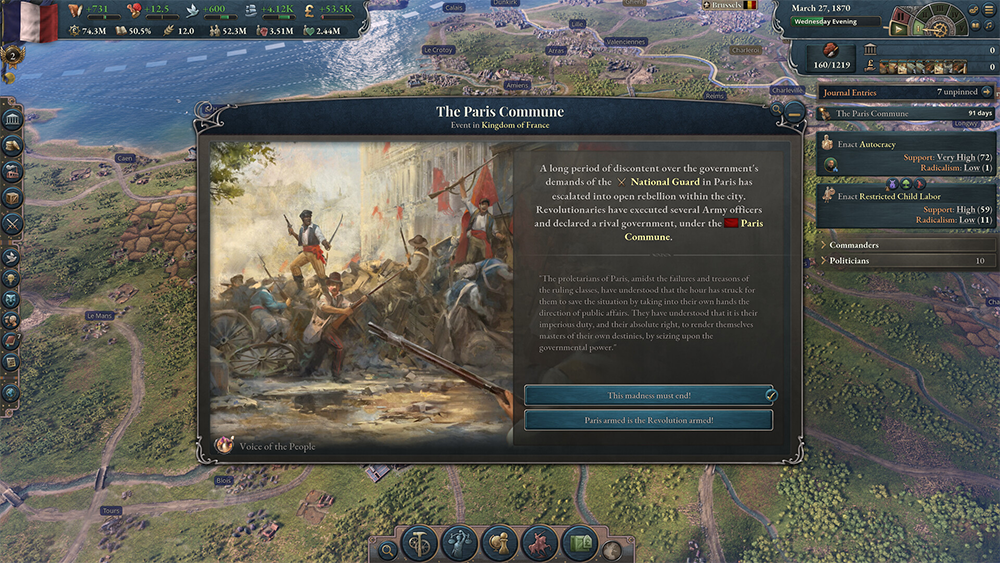
The main objective of ‘Europa Universalis’ is to expand your territory, but there are various ways.
You can advance eastwards towards Siberia in the Russian Empire or aim to recapture Constantinople. In England, you can not only build colonies on the east coast of the New World, but you can also achieve a United Kingdom of England and France.
The scope of the gameplay is greatly expanded depending on the player’s ideas.
However, in Victoria 3, the path to political reform to achieve economic development is limited.
If economic development and liberalisation are inseparable, then that’s fine. However, the path should be as diverse as natural history.
Wars are decided by economic and technological power. There is no room for Tactics.
The game system for economics and politics has evolved ambitiously, but the system for war has been dramatically simplified.
A battlefront is formed along the border between the countries concerned when war breaks out. All the player has to do is send troops to the front. There is no need to control units, and the outcome of each battlefront is automatically decided by the superiority of the forces sent by each side. Basically, the player just has to watch.
Some players may be unable to get used to this new war system because it is too simplified. In fact, it is not fun to play even if you are at war because there is little room for player intervention.
However, considering the game’s concept, the intention to exclude the room for Tactics in war is understandable.
The UI and controls must still be a little easier to understand.
Otherwise, there is no point in simplifying the system.
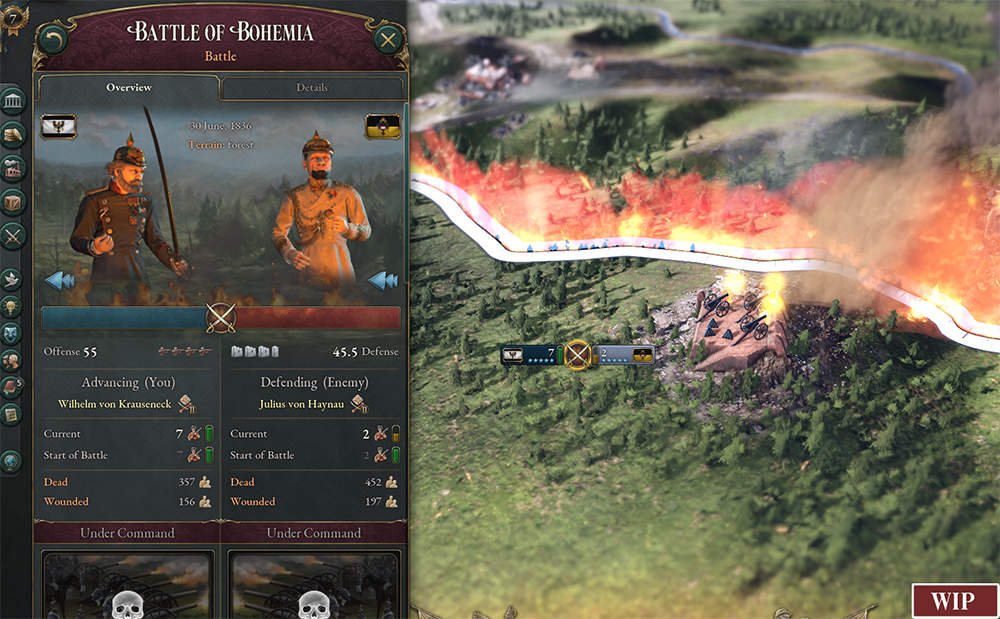
Diplomacy is where war and peace meet.
On the other hand, an exciting system was introduced into the diplomatic system: “Diplomatic play.”
In Victoria 3, even if you start a war by demanding the ceding of territory or opening markets, it won’t start immediately. First, you must go through diplomatic maneuvers involving neighboring countries in a “diplomatic play” only if negotiations break down will you engage in war.
While the diplomatic play unfolds, the countries involved will try to win over neighboring countries by offering various conditions. The neighboring countries must decide which camp to join or remain neutral.
As a result, the conflict may be resolved without the outbreak of war. Still, if neither side backs down, a war involving the surrounding countries will finally break out.
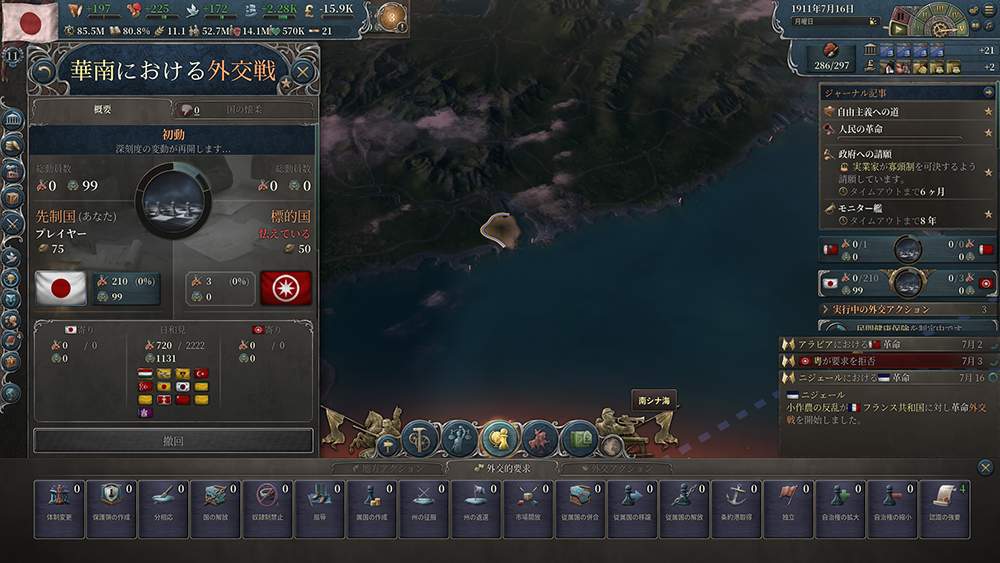
What makes this diplomatic play so interesting is that it sets a halfway point between war and peace.
In strategy games up until now, war has either been on or off.
However, in real diplomacy, war and peace are a gradient, and various tactics are being played out by the countries involved. War is merely the result of this.
In Victoria 3, they tried to express the “middle ground between war and peace,” and at least in terms of the game system, it can be said to have been a success. This “diplomatic play” system will majorly impact future strategy games.
Unfortunately, the content doesn’t quite live up to it.
The tactics in the diplomatic play are still straightforward, and there is not much you can do, so the game does not show a presence that matches the innovativeness of the system.
I don’t think it can be said that it has achieved a level of cunning and deceitful diplomacy.
For this system to function fully, it seems that differences in diplomatic strategy between countries will be necessary, so it will probably be up to future updates to demonstrate its true worth.
For America to be America.
For Germany to be Germany.
So far, I have been discussing the individual game mechanics of ‘Victoria 3‘.
However, I want to focus on the significant change in game design that Paradox is attempting in Victoria 3.
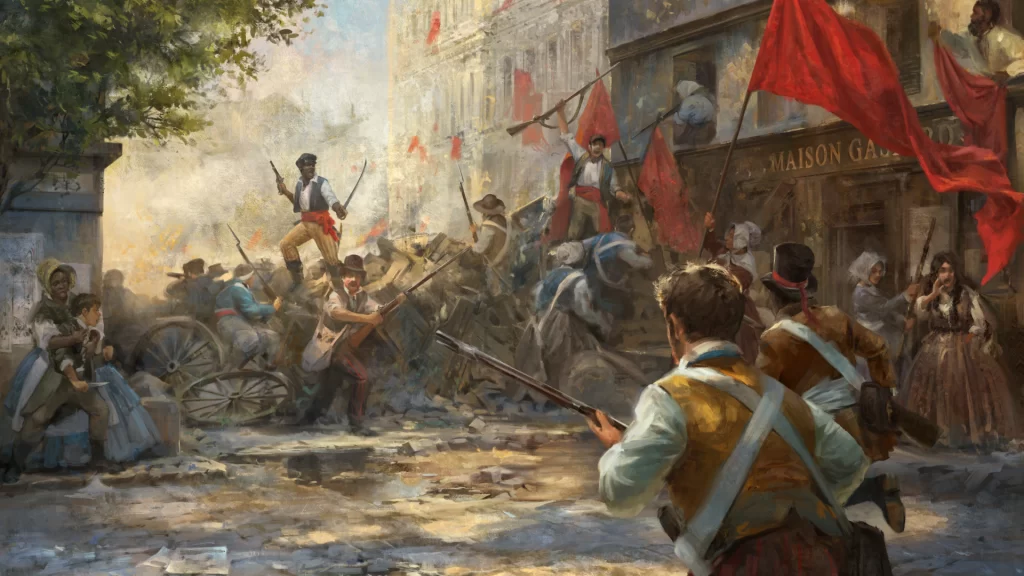
In the previous game, ‘Victoria 2‘, strange things happen.
For example, let’s say that an imperial regime was forcibly established in America. It is a dictatorship by the emperor, suppressing human rights and denying citizens any right to vote.
However, even so, the flow of European immigrants to this worst of “American Empires” never ceases.
Why does this happen?
The reason is simple: the Americas have an intense immigration bonus.
This bonus is permanent, so no matter how oppressive the countries of the Americas may be or how liberal the European countries may be, people will migrate from Europe to America like they were being led by the Pied Piper of Hamelin.
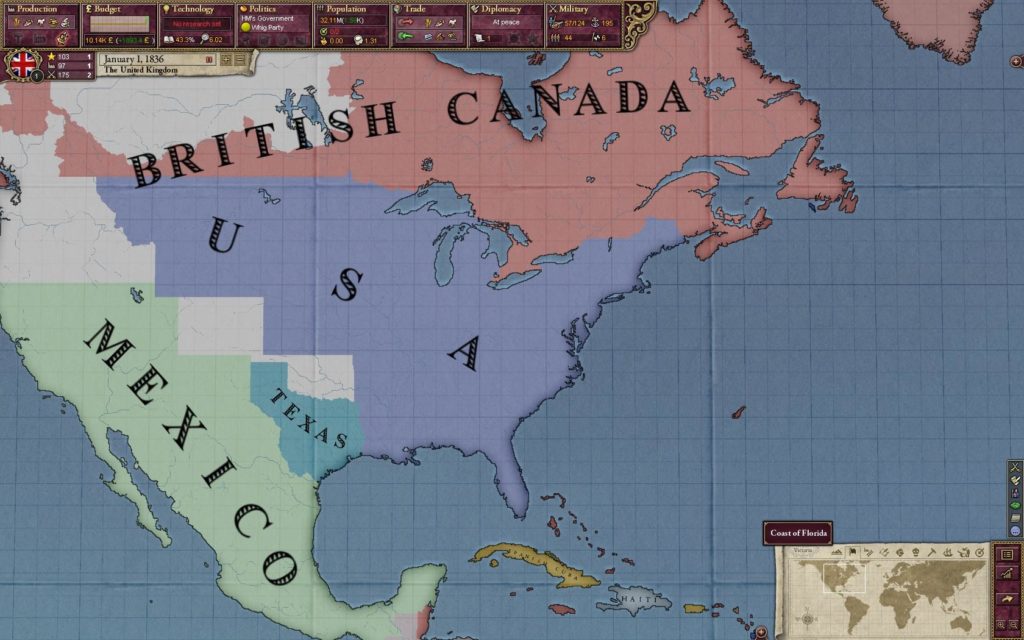
Or Europa Universalis 4.
The great power of northern Germany, Prussia, has various army bonuses such as “Army Command +20%” and “Infantry Combat Power +20%”. As a result, it is overwhelmingly strong in land battles. It is almost impossible to lose to an equal number of enemies.
And these bonuses will never disappear as long as Prussia is Prussia.
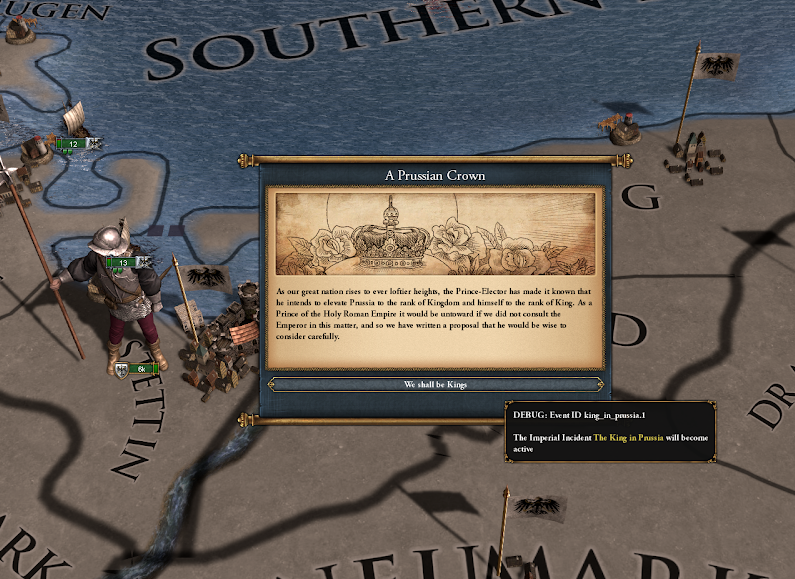
As you know, the nation of America was established by immigrants from Europe, and it developed into a superpower through the efforts of these immigrants.
In addition, Prussia would play a leading role in the unification of Germany through its powerful military.
The appropriate national characteristics have been assigned to the USA and Prussia to recreate this historical fact in the game.
America acts like an America, and Germany acts like a Germany.
Prussia is strong.
Because they are Prussia.
The benefits of this design are apparent. It allows each nation’s behavior in the game to be closer to historical facts.
On the other hand, a disadvantage is that, as with the “American Empire” in Victoria 2 mentioned above, depending on the development, unnatural situations may occur.
The bloating of the game system should also not be underestimated.
As you assign each nation in the world its own characteristics, the game system becomes more and more complex. If you also assign attributes to religions and ethnic groups, the system will become unstoppably bloated.
As a result, Europa Universalis 4 has released 36 additional DLC packs, making it one of the most complex games currently in operation.
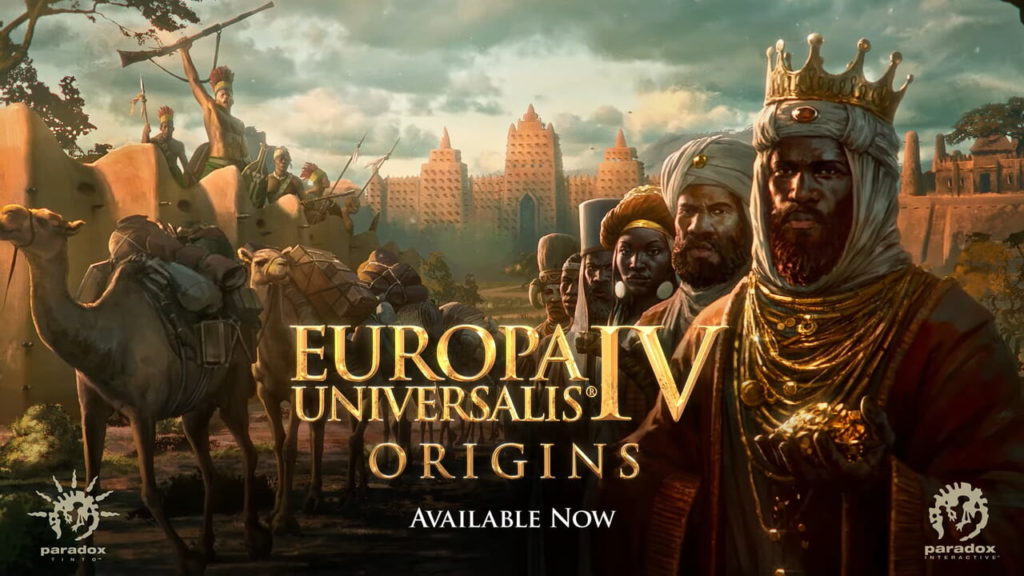
However, the biggest problem with this design is something else.
The characteristics of a nation are inseparable from its existence, which gives rise to a kind of tautology.
“Prussia is strong in war because they are Prussia.”
And Paradox wanted to change this.
Paradox is a game developer that has always aimed to recreate human society in a given era using a game system rather than simply using history as a subject.
They decided to incorporate a more logical and ambitious system into ‘Victoria 3‘.
A new logic that Paradox is challenging.
Paradox has attempted with ‘Victoria 3‘ not to give each nation its unique characteristics but to recreate the factors that give rise to them in the game mechanics.
The idea is that the mechanics will create a result such as “America, which attracts immigrants,” or “Prussia, which is strong in war.”
For example, ‘immigration’.
In ‘Victoria 3‘, whether immigrants will come or not is determined by policy. There is no such thing as a specific country having an immigration bonus.
Open your borders, adopt multiculturalism, achieve separation of church and state, and have sufficient economic power. Immigrants will come to your country in search of a better life.
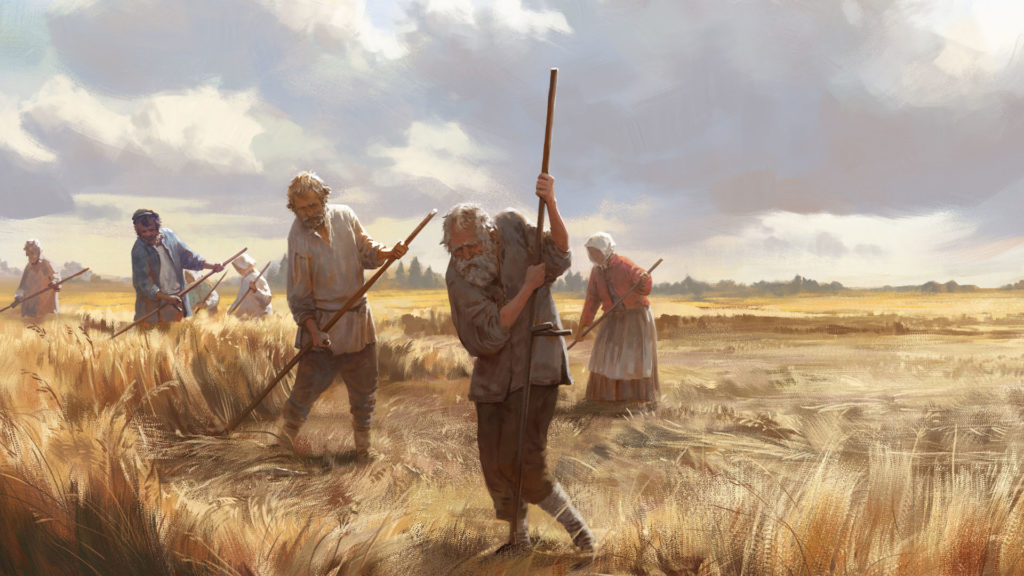
In other words, certain conditions must be met for immigrants to come to a country, and as long as these conditions are met, immigrants will come to any country.
It is undoubtedly true that the United States most closely matches these conditions, but it is not because it is the United States that it is able to attract immigrants.
Each nation does not rely on special abilities to attract immigrants or increase their military strength. Instead, they increase their immigration and strengthen their military by fulfilling the predetermined conditions by the game mechanics and rules.
This is the logic of Victoria 3.
Describing the world using global rules will result in the loss of diversity.
Unfortunately, it is difficult to say that the new logic of ‘Victoria 3‘ is currently a success.
The reason for the fact that the process and results of “economic development” and “political reform” are the same no matter which country you play in is because of this new logic.
In ‘Europa Universalis 4’, each nation and religion has local rules. This is why the gameplay differs depending on the country you play in.
In Victoria 3, on the other hand, no country has any unique characteristics, and the player and their nation must follow the global rules of the game. No country can escape from this.
As a result, gameplay inevitably becomes similar.
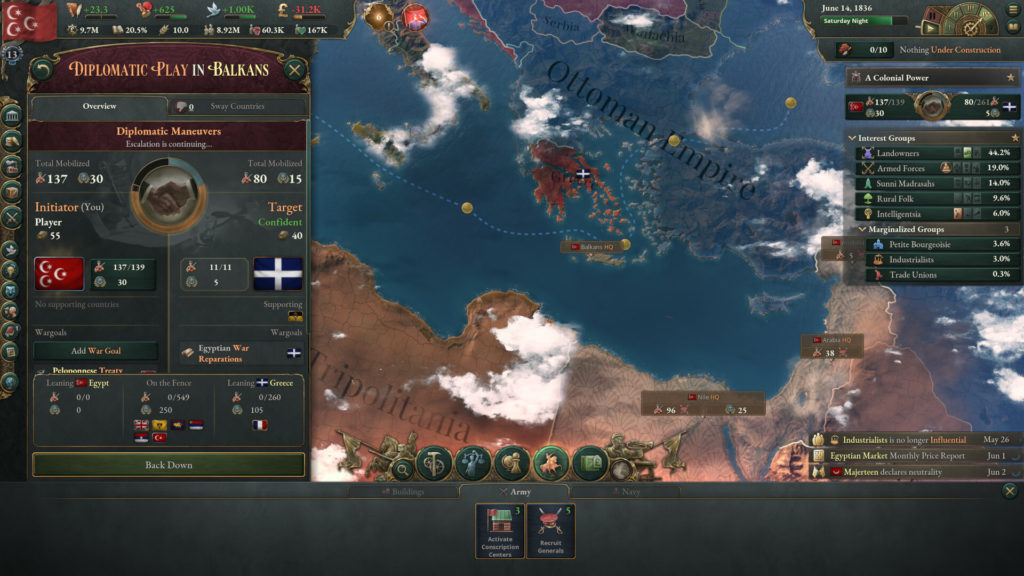
Of course, the gameplay will not be the same if you play in Japan as in America. The two main factors that create this difference are as follows.
One is the initial conditions.
The United States has had a parliamentary democracy since the start of the game. In contrast, Japan has had a shogunate-led autocratic government. Japan needs to move towards a more liberal system through political reform. Still, it is not easy to close the gap with the United States.
In addition, the number of natural resources within a country and geographical factors such as diplomatic relations with neighboring countries also differ from country to country.
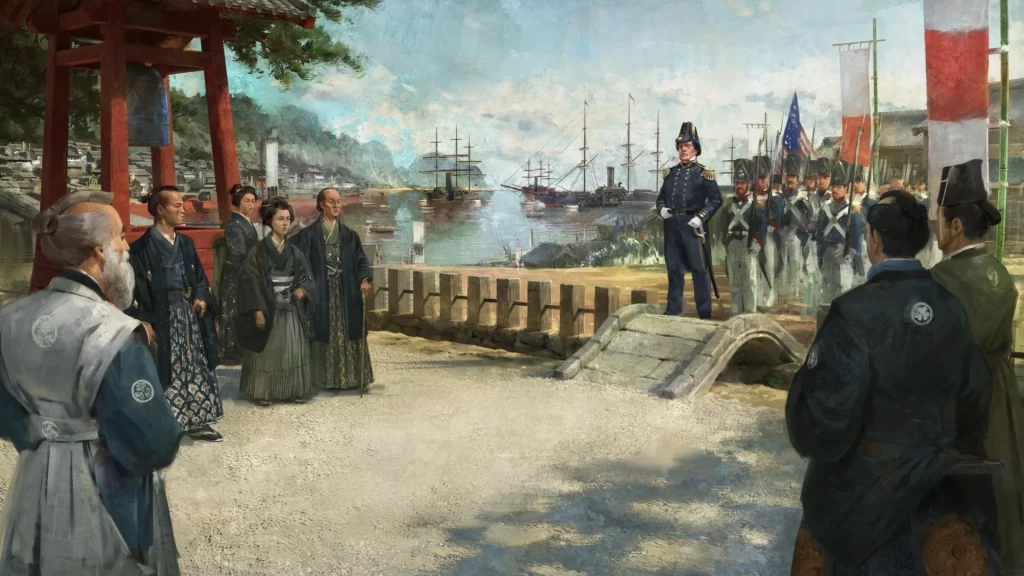
The other is a historical event.
Historical events that occur under certain conditions are prepared for each nation. For example, the Meiji Restoration in Japan is triggered by this event.
However, few have such a dramatic effect as to completely change the situation, as in Europa Universalis, and they are more like things that grant bonus points.
This is probably due to Paradox’s desire to avoid having history unfold along a set script.
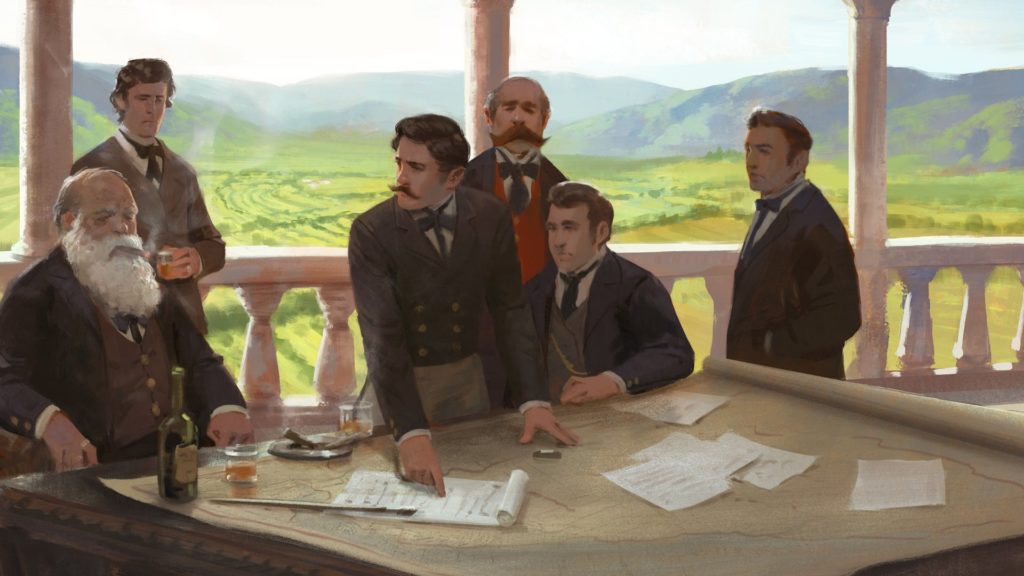
However, it seems that initial conditions and historical events alone are insufficient to create gameplay diversity.
The difference in initial conditions is ultimately just the difference between starting from 0 or starting from 50. As mentioned above, historical events have a modest effect.
Describing the world using global rules and expressing historical diversity using only initial conditions and variables is tough. Orbi Universo, an indie game that attempts to convey the history of human civilisation using the same concept as Victoria 3, also faces a similar lack of diversity in gameplay.
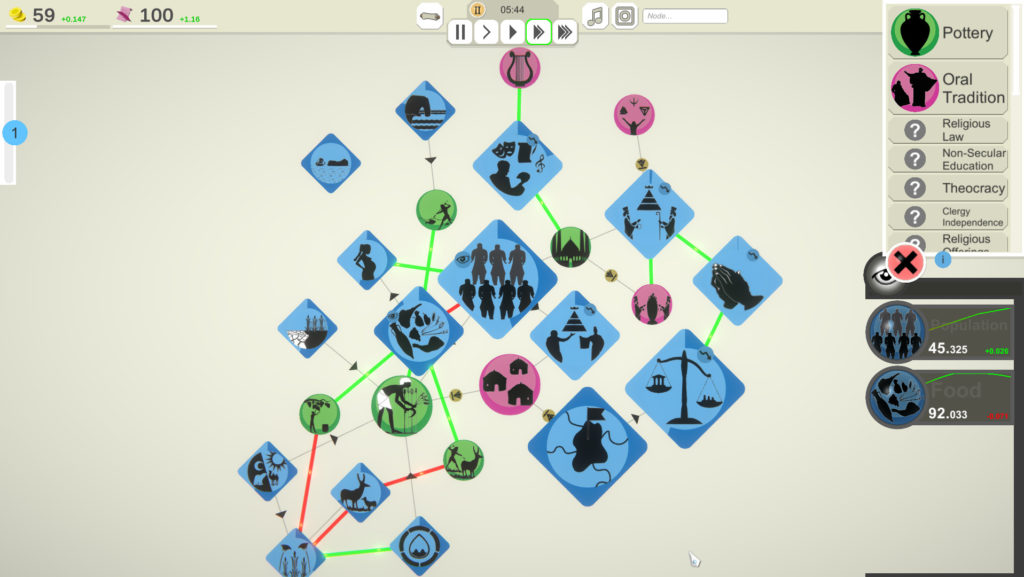
In reality, human history has been like falling leaves, swaying from side to side in the wind. Expressing this fluctuation in a historical strategy game cannot be done overnight.
No one knows the answer to the question of whether simply increasing the number of variables will solve the problem or whether something else is needed. Paradox is trying to find that answer.
It is a dream, a far-off dream.
One reason for the poor reviews of the current version of Victoria 3 is the lack of diversity in the gameplay, as mentioned above.
However, Paradox’s attempt with ‘Victoria 3‘ is highly commendable.
I must say that the game’s current level of completion is poor. And it’s also unclear whether or not it will be improved.
Even if ‘Victoria 3‘ does not improve with future updates, I would still not hesitate to support this work.
This is because Paradox’s attempt to describe the world using global rules is what is important.
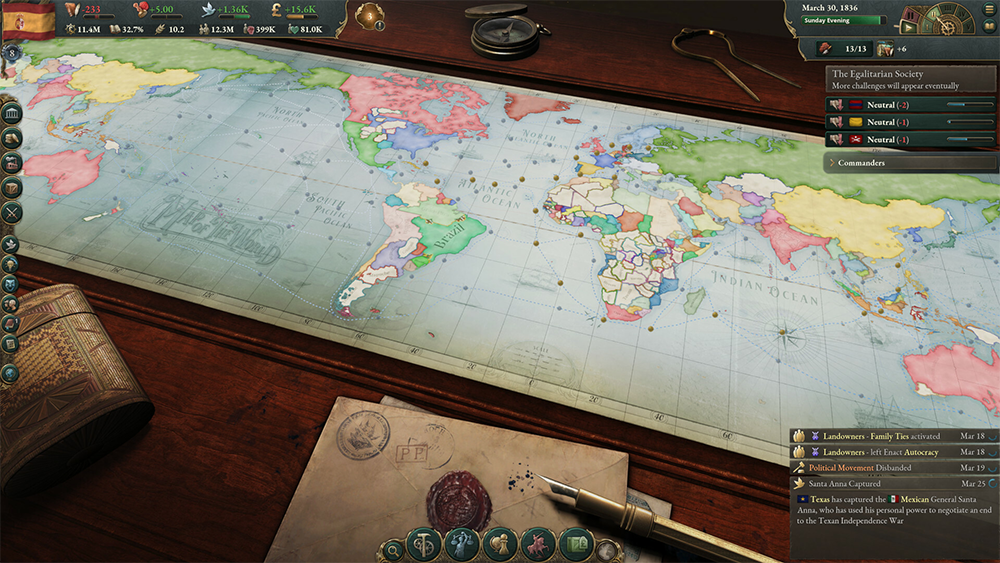
Describing the world using global rules.
It is almost synonymous with understanding this world.
It is a long-cherished dream that has continued since our ancestors looked up at the sky and realised that there was a “world” out there.
For example, the Unified Field Theory, a far-off dream of the scientific community, aims to describe the four fundamental interactions in a unified manner. Einstein sought this dream for 30 years but could not fulfill it.
The desire to understand the nature of the world and its rules is something that can be said to be an instinct of humanity.
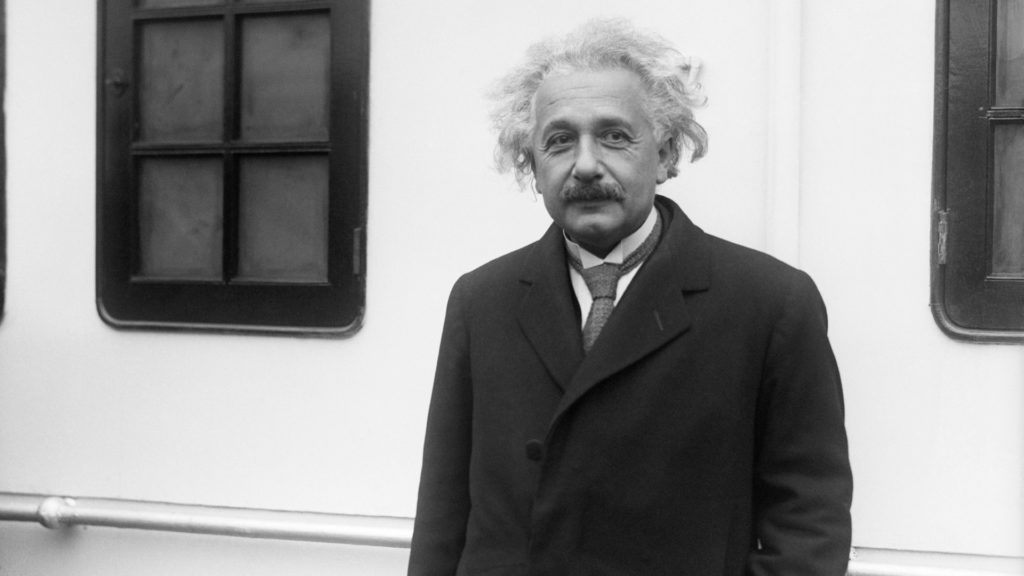
That is why I am impressed by Paradox’s attitude toward once again attempting to describe the world using global rules rather than being daunted by Europa Universalis 3’s massive failure in 2007.
Cinema can express certain events and scenes but cannot recreate the structures that give rise to them. However, games can do this.
Then, I have no reason not to support Paradox’s determination to recreate the surface of events and the structures that give rise to them.
But it’s a long road.
Unification of fields nor Paradox’s dream.
Victoria 3
steam : https://store.steampowered.com/app/529340/Victoria_3/